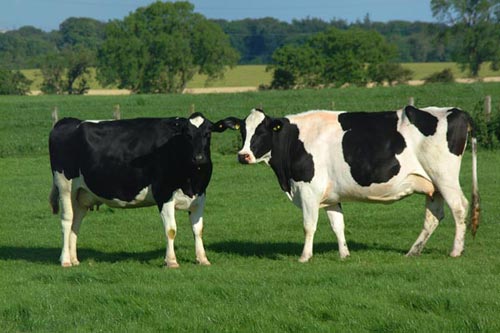Tuesday, 03/03/2026 | 20:31 GMT+7
A steel plant in South Korea has managed to improve energy efficiency and lower fuel cost by turning cow dung into a source of green energy to power its production.
Cow dung, traditionally used as a fertilizer, is now being collected and used to produce biofuel that is greener and more efficient than traditional fuels like coal.
Seoul-based Hyundai Steel has developed a new method to use cow dung as an auxiliary fuel for steel making.
“We simulated uses of different kinds of auxiliary fuels in steel making, with procedures like sintering of cow dung and improving the burning efficiency. We found that cow dung is the most suitable for use in blast furnaces,” said Kim Byung-chul, head of the R&D department at Hyundai Steel.

Cow dung is useful throughout the whole steel making process, according to Kim. Using cow dung instead of carbon powder as a fuel to melt iron could increase burning efficiency by more than 30 percent, while replacing coal with this renewable source of energy would not only raise temperatures in the making process but also lower raw material costs, he said.
“Cow dung can reach its burning point in a short time when it is burnt in blast furnaces, which also prevents unburned coal residue from accumulating in the blast furnaces. We have turned 75 tons of cow dung into fuel that can be used in two blast furnaces for around six hours. We would probably need some 100,000 tons of such fuel to use it for the whole year,” Kim said.
The effect of burning one ton of cow dung equals that of burning half a ton of coal. Figures show that South Korea is able to use 3.5 million tons of cow dung as an auxiliary fuel per year, which means reducing coal consumption by 1.75 million tons and saving nearly 220 billion won (about 200 million U.S. dollars).
The South Korean government started trading carbon emissions in January to strengthen its environment management efforts. Under the policy, businesses will become more active in exploiting greener and cheaper alternative energies like cow dung, experts said.
“The South Korean government has tightened supervision over carbon emissions since climate change is increasingly affecting our daily life. In adapting to the new policy, businesses will increase their research and experiments on turning waste into new energy,” said Yu Seung-hun, an energy and environment professor at Seoul National University of Science and Technology.
Anh Tuan







